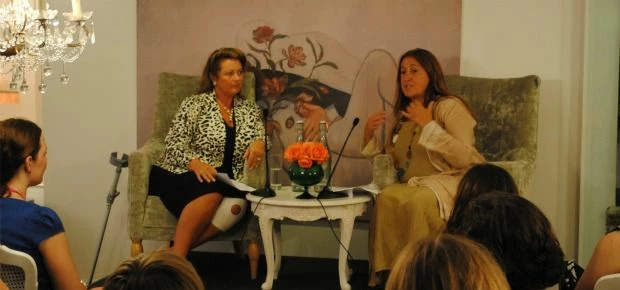
Partner Article
Quotas for women on boards – has the time come to rethink?
Quotas – it’s a word that polarises when it comes to women on boards, and few can have escaped the recent debate around whether or not they should be imposed on UK businesses. As the director of Women 1st, an initiative that aims to increase the number of women in senior roles in hospitality, passenger transport, travel and tourism, it’s a debate I have kept a close eye on.
Women 1st has never advocated positive discrimination or quotas – we have chosen to focus on the clear business case for having women in senior roles, enlightening businesses about the benefits of mixed-gender leadership and providing support for organisations that want to achieve a better balance of men and women at the top. But I’m aware that, with recent figures showing that the rate of appointments of women to FTSE 100 boards has slowed drastically, many women feel change is not happening fast enough.
Debbie White, CEO for Sodexo UK and Ireland, is one of them. Speaking at our latest networking event, she shared her own personal view that quotas would be a positive move for UK plc, commenting: “Six years ago, I did not agree with quotas. I was absolutely anti-quotas. I thought in the rush to make the numbers, women who were not the best qualified may get appointed.
“But, if you look at the statistics, over 60% of our graduates are women. In my era, over 40% of graduates were women. There are enough very good women out there to do really good jobs, so not having enough women is not the issue. Systemic issues such as organisational culture, practices and processes that identify and develop talent, the lack of adequate role models and, perhaps most importantly, our own unconscious biases have got to change if we are to make progress.
“If we had to vote on whether we should have a quota, I would vote for it. I know it’s controversial and it is not a view widely shared, but at this point, progress has not been good enough and quotas would be a way of ensuring everyone takes responsibility. Gender diversity is not somebody else’s responsibility – we all have a role to play.”
Sodexo’s UK business has already exceeded its own aspirational target of having 25% women in senior leadership roles by 2015, with 31% of its senior team made up of women, but it is still working proactively to increase the balance, particularly of women with profit and loss responsibility. But, as the latest figures demonstrate, not all businesses are taking such a proactive approach.
So, is it time to rethink the necessity of quotas? A show of hands at our event revealed that opinion was split, and Women 1st is keen to gather views, from both men and women, as to whether public opinion is changing.
We have set up a poll on our LinkedIn group, which allows people to share their views on whether introducing quotas would be a good move. To cast your vote and add your voice to the debate, visit http://bit.ly/w1quotas
This was posted in Bdaily's Members' News section by Simone Roche .
Enjoy the read? Get Bdaily delivered.
Sign up to receive our popular morning National email for free.








 Navigating the messy middle of business growth
Navigating the messy middle of business growth
 We must make it easier to hire young people
We must make it easier to hire young people
 Why community-based care is key to NHS' future
Why community-based care is key to NHS' future
 Culture, confidence and creativity in the North East
Culture, confidence and creativity in the North East
 Putting in the groundwork to boost skills
Putting in the groundwork to boost skills
 £100,000 milestone drives forward STEM work
£100,000 milestone drives forward STEM work
 Restoring confidence for the economic road ahead
Restoring confidence for the economic road ahead
 Ready to scale? Buy-and-build offers opportunity
Ready to scale? Buy-and-build offers opportunity
 When will our regional economy grow?
When will our regional economy grow?
 Creating a thriving North East construction sector
Creating a thriving North East construction sector
 Why investors are still backing the North East
Why investors are still backing the North East
 Time to stop risking Britain’s family businesses
Time to stop risking Britain’s family businesses